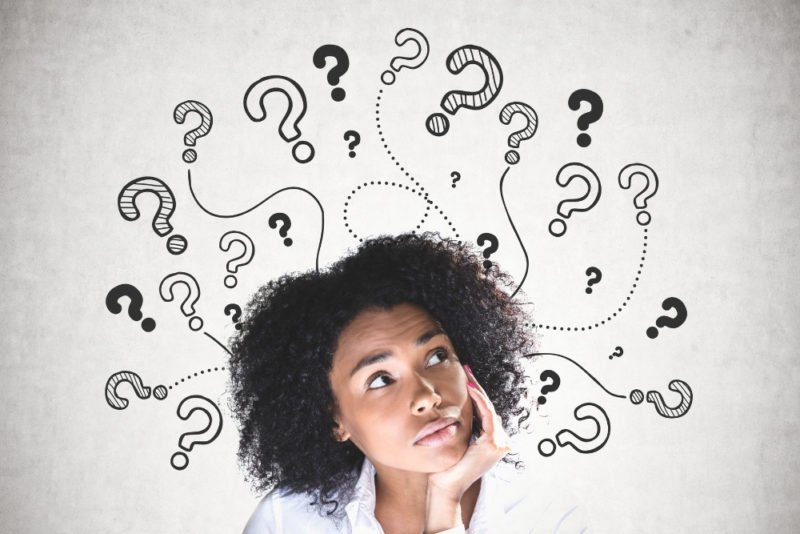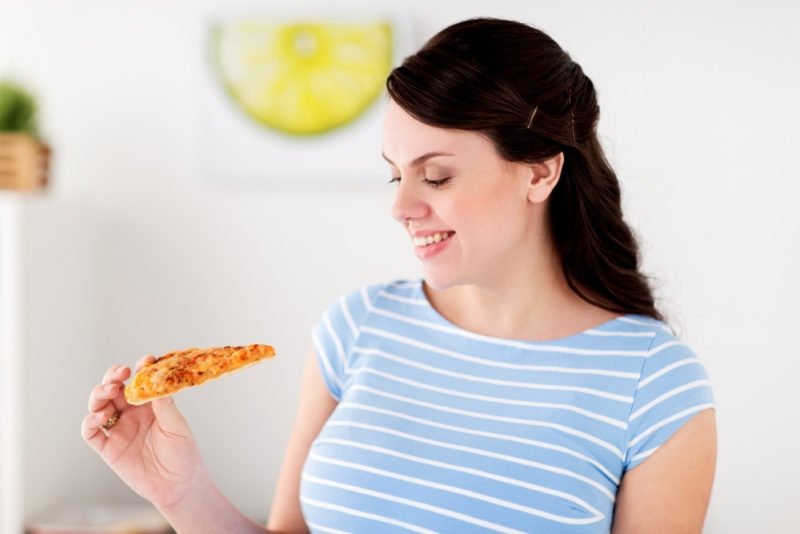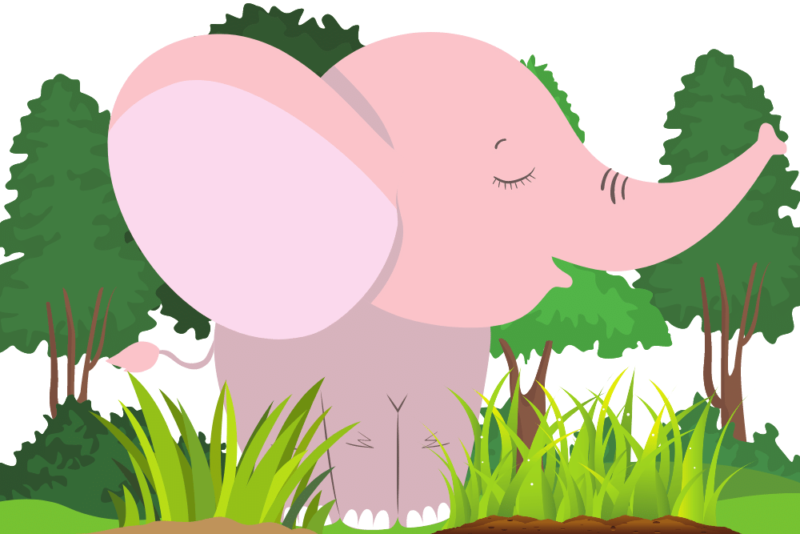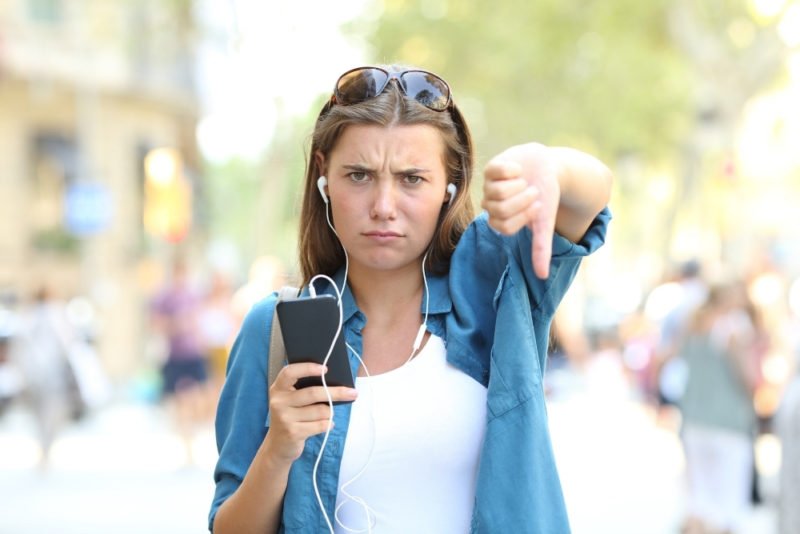
I occasionally about whether Intuitive Eating is basically “intuitive weight loss” — although honestly, most people who contact me about learning Intuitive Eating are simply sick and tired of (even exhausted from) the years or decades of dieting they’ve put themselves through. They’ve reached the point where they just want to make peace with food and their bodies.
What I do see and hear more often is the notion — spread through articles, social media, marketing materials of nutrition coaches and weight loss programs, and even healthcare system newsletters—that Intuitive Eating is a “non-diet” tool for weight loss.
Um…I don’t think so.
Intuitive Eating has nothing to do with weight. It’s weight neutral. Intuitive Eating is about making peace with food and learning to nourish your body based on hunger, fullness and satisfaction. It does not keep one eye on the scale.

The truth about IE and weight
Here’s the deal: Some people do lose weight when they start practicing Intuitive Eating, some people gain some weight, and some people stay the same. I’ve also had clients who experience some weight fluctuations, perhaps gaining then losing or stabilizing, as they practice their new skills. How someone’s body responds to Intuitive Eating largely depends on what was going on before beginning Intuitive Eating:
- If someone was suppressing their weight below the range their body is meant to be at, then they will likely gain some weight.
- If someone was eating mindlessly and completely out of touch with their body’s fullness and satisfaction cues, then they might lose some weight.
- If someone was caught in a vicious restrict-and-binge cycle, they may fluctuate and stabilize as they start to create permission to eat all foods (not letting things build to a point where they binge on those foods) and learn new ways of coping with emotions that may have helped trigger the binges.
Ultimately, the idea is that when you are an Intuitive Eater, your weight settles in a range (not a single point) that you can maintain without restriction. That weight may or may not be what you have in mind when you think about an “ideal weight.” It probably won’t be or what you weighed when you were 18. Trying to fit your unique body into a mold of a specific shape and size is about as realistic as changing your shoe size, your height or your eye color. Saying “I want to weigh X” (or “I should weigh X”) is arbitrary and chasing that number can lead to ongoing physical and mental suffering.

But if you want to lose weight, it’s OK
Here another truth: It is not uncommon AT ALL to want to give up the trauma of dieting and instead make peace with food through Intuitive Eating…but to also kind of want to lose weight. If that’s you, please know that it’s OK to have those feelings. You’re not some kind of Intuitive Eating traitor. We all swim in the water of diet culture, which tells us that we should try to shrink our bodies. Your feelings are real, but that doesn’t mean you have to obey them.
So how does that even work? Well, when I’m working with clients on Intuitive Eating and they still have their semi-secret wish of weight loss, I ask them to put those thoughts and feelings on the back burner. They’re still there, but they’re not the focus. We’re just setting them aside, not trying to block, bury or deny them — which doesn’t work when you’re dealing with thoughts and feelings. (Just try to NOT think of a pink elephant right now. I’m serious…don’t think about it!)
It’s important to set those thoughts and feelings aside because trying to use Intuitive Eating to spur weight loss totally gets in the way of actually becoming an Intuitive Eater. After all, “Reject the Diet Mentality” is the first principle of Intuitive Eating, but more than that, how can you fully honor your hunger, choose foods that are satisfying to you and engage in forms of movement that you truly enjoy (rather than picking exercise based on “calorie burn”) if you are trying to make your body smaller?
For many people, the relief of not dieting anymore and eating in a way that is totally satisfying and feels good physically eventually squashes lingering weight loss desires. This mental switch may be easier in people who are in bodies that are already on the smaller side, because that’s “socially acceptable.” In clients who are in larger bodies, body acceptance work is a helpful adjunct (“Respect Your Body” is one of the Intuitive Eating principles).

So, why do some people say that IE is a diet?
If Intuitive Eating is decidedly weight neutral, and not about changing body size and shape, then why do so many individuals and companies try to sell Intuitive Eating for weight loss? I see three reasons why this happens:
One. Again, we live in diet culture, and that makes it easy to take something like Intuitive Eating, which has been around for 25 years and has a growing body of research demonstrating its benefits, and view it through a diet-and-weight loss lens. Incidentally, some of those benefits include:
- Less disordered, emotional, binge or out-of-control eating
- Higher body appreciation and acceptance
- Less self-silencing (suppression of thoughts, feelings or needs)
- More food satisfaction (and a more varied diet)
- Healthier blood pressure and cholesterol levels
- Greater feelings of well-being, optimism and life satisfaction
- More psychological hardiness and better coping skills
Two. Related to number one, some people (including some dietitians, sadly) appear to honestly misunderstand Intuitive Eating. They tend to focus on only two of the 10 principles, “Honor Your Hunger” and “Feel Your Fullness” and wind up interpreting Intuitive Eating as a sort of “hunger-fullness” diet. These people are not certified Intuitive Eating counselors (as I am) and did not train with Evelyn Tribole and Elyse Resch, the two dietitians who developed Intuitive Eating (and wrote the book).
Three. Even though it’s not new, Intuitive Eating is becoming more popular, as the futility and harms of weight loss dieting become clearer and more people decide to give food restriction and their bathroom scales the heave-ho. And when something is popular, that makes people and companies want to co-opt it for their own benefit. This also happened with body positivity. There are some very popular diet plans out there that claim to use Intuitive Eating. Here’s what Evelyn Tribole had to say about that on Instagram last month (if you don’t follow her, you should):

Evelyn also wrote emphatically about this very issue on her own blog in 2019.
Disclaimer: All information provided here is of a general nature and is furnished only for educational purposes. This information is not to be taken as medical or other health advice pertaining to an individual’s specific health or medical condition. You agree that the use of this information is at your own risk.
Hi, I’m Carrie Dennett, MPH, RDN, a weight-inclusive registered dietitian, nutrition therapist and body image counselor. I offer compassionate, individualized care for adults of all ages, shapes, sizes and genders who want to break free from eating disorders, disordered eating or chronic dieting. If you need to learn how to manage IBS symptoms with food, or improve your nutrition and lifestyle habits to help manage a current health concern or simply support your overall health and well-being, I help people with that, too.
Need 1-on-1 help for your nutrition, eating, or body image concerns? Schedule a free 20-minute Discovery Call to talk about how I can help you and explore if we’re a good fit! I’m in-network with Regence BCBS, FirstChoice Health and Providence Health Plan, and can bill Blue Cross and/or Blue Shield insurances in many states. If I don’t take your insurance, I can help you seek reimbursement on your own. To learn more, explore my insurance and services areas page.






